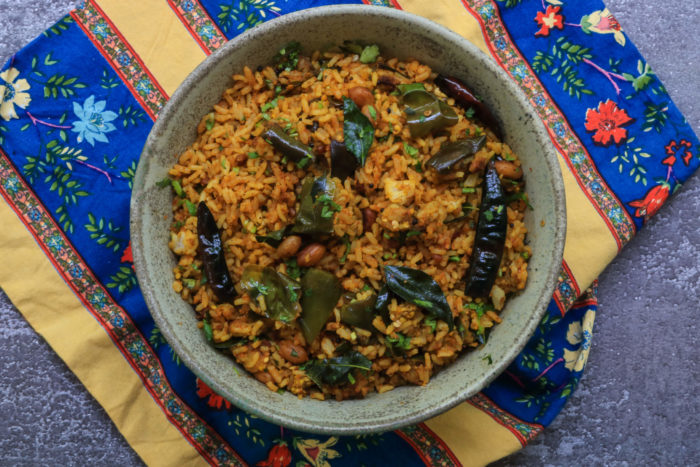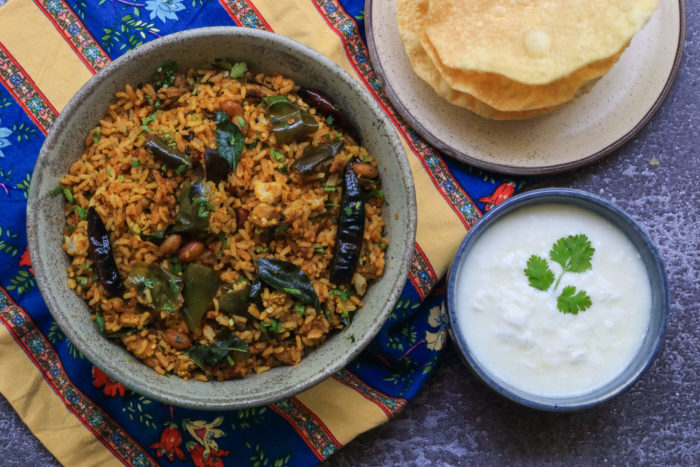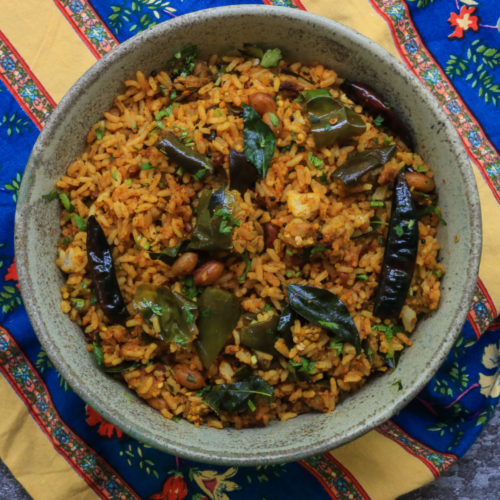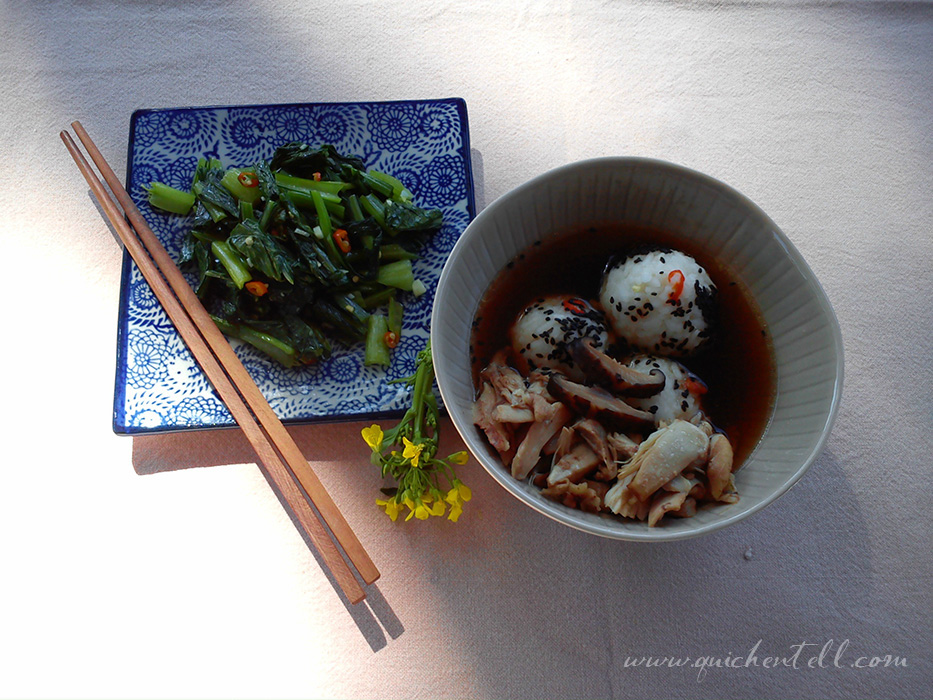Vaangi Bhat literally means eggplant/aubergine/brinjal rice. And that’s exactly what it is – a dish of eggplant and rice lightly fried with an aromatic and nutty spice mixture. Vaangi bhat belongs to the cuisine of Karnataka in South India. It is an excellent one-dish meal and one of my favourite ways of cooking small, purple eggplants.
Choose your eggplant
Eggplants come in so many shapes and sizes and it is important to pick the right type for every recipe; because this has a direct bearing on how the dish turns out. For example, large eggplants (Globe and American varieties) are not suited for curries and Asian-style stir fries. They’re great for bharta, Bengali begun bhaja, baked dishes and for grilling.
For vaangi bhat, Indian eggplant, also commonly known as baby eggplants are the best. These are small, dark, glossy purple with not very high water content. You may also use the medium size, striped purple variety (also called the Sicilian eggplant). Avoid the white and green ones, these are less sweet with a very high water content and will turn mushy very quickly. The baby eggplants must be trimmed, stalks removed and cut into quarters, lengthwise.

Copra or fresh coconut?
Traditional vaangi bhat recipes use copra which imparts a rich, nutty bite to the dish. Copra is the kernel or flesh of fresh coconut that’s sun-dried to remove all moisture. The hard, dried kernel has a 30-40 per cent concentration of oil. Copra is generally grated, ground into a masala (spice) paste or thinly sliced and fried when it is added to dishes. The cuisines of Maharashtra and Karnataka famously quite prolific in their use of copra.
Copra is quite hard and can be difficult to grate, so I use a cleaver to chop it into small pieces, which I grate in a food processor. A quick 10 sec whizz yields shredded flakes, similar to what I would get from a box grater. Vaangi bhat can be made without copra also; just toast grated, fresh coconut in a dry pan till golden and use as directed in the recipe.

This is a simple recipe that uses dried spices found in every Indian kitchen. Vaangi bhat can be eaten by itself but accompanied by fried papad (pappadam) and a bowl of natural yoghurt somehow makes it a more rounded and satisfying meal.

Vaangi Bhat
Ingredients
- 350 g purple, baby eggplants, stalks trimmed, cut into, 4 quarters, lengthwise (boat-shaped wedges)
- 250 g rice
- ½ tsp turmeric powder
- ½ tbsp black mustard seeds
- 2 dried red chilles
- ½ tbsp chana dal (split chickpea lentils), rinsed and drained
- ½ tbsp urad dhuli dal (skinless split black gram lentils) rinsed and drained
- 10 curry leaves
- ¼ tsp asafoetida powder or hing
- 2 tbsp til or gingelly oil (not toasted sesame oil used in Asian cuisine) or vegetable oil
- 1 tbsp fresh coriander, chopped
- 2 tbsp roasted, skinned peanuts (groundnuts)
- Salt
For the ground masala
- ½ copra grated
- 2 tsp coriander (dhania) seeds
- ½ tsp fenugreek (methi) seeds
- 4 dried red chillies
- 2 tbsp chana dal (split chickpea lentils), rinsed and drained
- 1 1-inch piece of cinnamon
- 2-3 cloves
Instructions
- Cook the rice, drain, gently loosen any clumps and spread the grains on a wide plate to dry-up any extra water.
- To make the ground masala (spice), gently toast the grated copra and chana dal for a couple of minutes in a dry pan. When they're lightly golden, add the remaining spices and toast for a further 30 seconds. Cool and pound to a coarse powder in a mortar or grind in a mixer/spice grinder.
- Heat oil in a wok or wide pan and when the oil is hot add the mustard seeds, both dals, red chillies and curry leaves and allow them to crackle. Add the asafoetida.
- Drop in the eggplants and turmeric and fry/cook on medium heat for 10-12 minutes till the eggplants are lightly browned and cooked but not mushy.
- Add salt, put in the powdered masala, fry for a minute, toss in the peanuts, then mix in the cooked rice. Ensure that the eggplant-spice mixture coats the rice and is evenly mixed. Stir fry the rice for a couple of minutes, mix in the chopped coriander and serve the vaangi bhat.





4 Comments
Sutiksha
September 8, 2022 at 5:27 pmSimple and soulful food!
quichentell
October 28, 2022 at 1:14 pmThanks!
vani
October 2, 2022 at 11:08 amLovely recipe and Iam going to try it.
quichentell
October 28, 2022 at 1:14 pmThanks Vani 😀